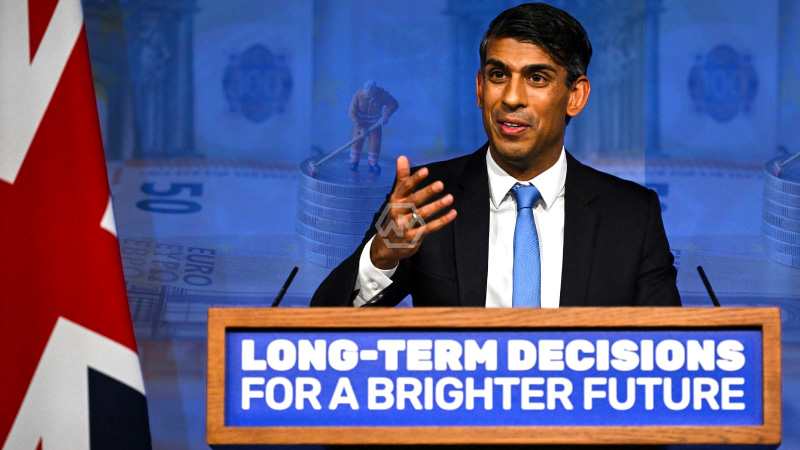- Mixed opinions have been expressed in response to Rishi Sunak’s decision to extend some of the UK’s net zero deadlines.
- Even some of Sunak’s MPs have issued warnings that it results in the loss of jobs and an increase in future energy costs.
- The UK economy might see growth by 2050 and serve as a driver for private-sector investment.
Mixed opinions have been expressed in response to Rishi Sunak’s decision to extend some of the UK’s net zero deadlines. Supporters claim that the proposed green regulations, which included a 2030 ban on new gasoline vehicles, would have financially hurt people, particularly during an inflationary period.
However, detractors claim that delaying net zero will harm the UK‘s economic prospects, erode company confidence, and push the nation farther behind in the competition for foreign investment. Even some of Sunak’s MPs have issued warnings that turning around could result in the loss of jobs and an increase in future energy costs.
Rishi Sunak’s adjustments
No one was required to adopt these steps right away, the Energy and Climate Intelligence Unit (ECIU) notes. The planned prohibition on the sales of gas boilers was not set to go into effect until 2035, and the rule only applied in cases where a boiler broke down or a person decided to switch.
The PM’s decision to scrap new energy efficiency rules for private rental housing could increase household costs in the UK by approximately £8 billion over the next ten years, and even more, if gas prices rise once again.
Meanwhile, Matthew Agarwala, an environmental economist at the University of Cambridge, called the entire measures “reckless” since they would put tenants in lower-quality dwellings, expose the public to dangerous air pollution for a longer period, and make vehicles vulnerable to fluctuations in the price of oil internationally.
Sources in the automotive industry claim that delaying the ban on gasoline and diesel engines until 2035 will only have a “limited” impact on people‘s wallets.
On the decision to delay the ban, automakers are divided. Ford claims that doing so will harm the transition to electric vehicles, while Toyota and Jaguar Land Rover call the decision “pragmatic.”
While some net zero initiatives may be beneficial to both the economy and the environment, there may be some financial hardship during the changeover. By moving through with the transition, the UK economy might see growth by 2050 and serve as a driver for private-sector investment, according to the independent consultancy Oxford Economics.



